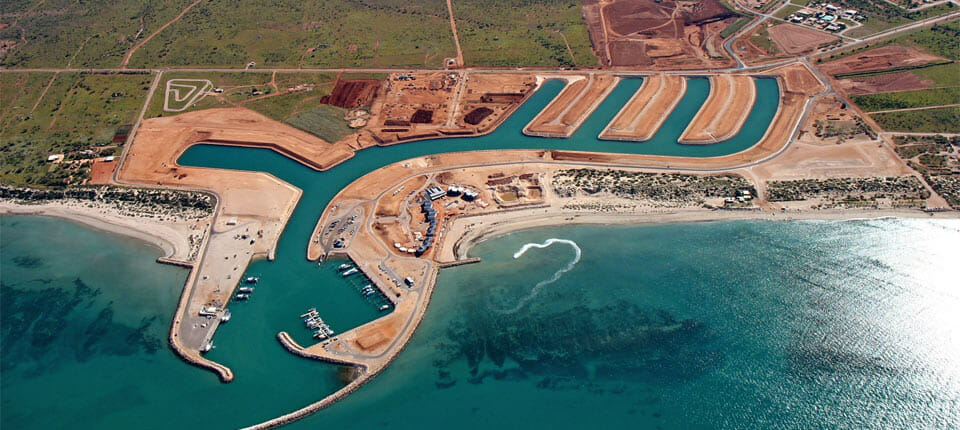Exmouth Marina
Overview
Works included dewatering, bulk earthworks, rock revetments and civil infrastructure.
The first stage of this development, which saw the construction of a series of super lots including a canal waterway extension inland from the pre-existing Exmouth Marina, was awarded by Landcorp to RJV in 2002. The second stage of the development, which was constructed by RJV on behalf of Lester Group, included about 150 residential lots and further extension to the stage one water way. The total cost of both stages was over $30 million.
Detail
Project statistics across the 2 stages included:
- About 1.6 million m3 of earthworks carried out
- Blasting of hard rock below water levels, at times in a quite unusual rock conglomerate.
- Over 3km of limestone block retaining wall
- 70,000m3 of quarried rock was produced with site won rock armour
- Nearly 50,000m2 of road works
- Approximately 11.5km of sewers and stormwater drains
- About 12km of services including a vacuum sewerage pump station to pump effluent to the town treatment site.
One of the most challenging aspects of the work was the remote location – on the end of a peninsula; nothing travels past Exmouth to another destination.
Another challenge was the large tidal movement: The need to excavate below sea level, immediately adjacent to the ocean, and with frequent storm surges and cyclones, meant an increased attention to the weather predictions was a requirement to ensure safety in construction.
Environmental and community considerations during these works involved the local aboriginal elders participating in the excavation through the dunes, and close monitoring of the water table during the dewatering for canal excavation to ensure level and salinity did not exceed tolerable levels. Also the closure of an old shire refuse site across the development necessitated testing of water quality to ensure impurities were not pumped into the protected waters of the Gulf, which is home to a major prawn fishing industry.
